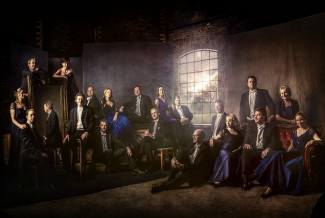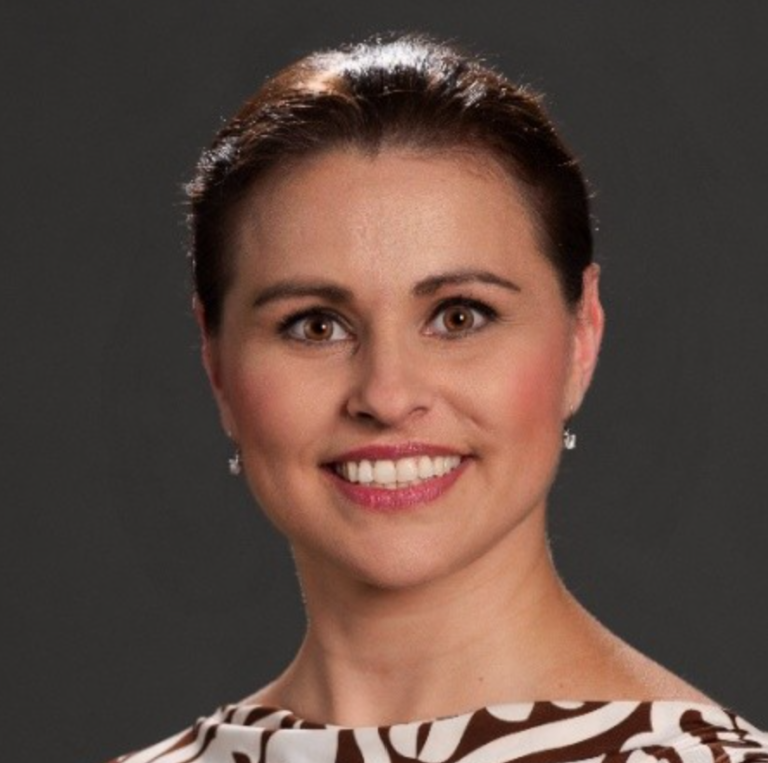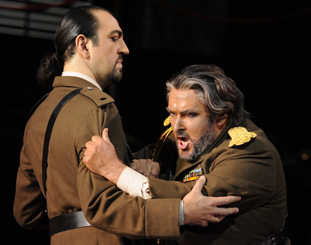Q And A with Harry Christophers

The Sixteen and founding director Harry Christophers CBE, are set to perform in Sydney again in March 2015.
Under the leadership of Christophers, the ensemble has enjoyed over 3 decades of enormous popularity and success for their scholarship and performances of early music, especially works of the baroque era and English polyphony. At the opposite end of music’s timeline, they have also championed the music of newer composers especially that of Scottish composer James MacMillan, from whose canon they will perform 4 works during their tour.
Harry Christophers graciously gave us some insights into what to expect from the upcoming tour in this Q and A with SoundsLikeSydney. He also spoke about the legacy that he is creating, ensuring the future of choral music through his programme for emerging choral singers, Genesis Sixteen.
SoundsLikeSydney: What is the size and composition of the ensemble that is to perform in Sydney in 2015?
Harry Christophers: 18 professional singers (6 sopranos 4 each of altos tenors and basses) and me.
SLS:What were the ideas that guided you when you compiled this tour programme?
HC: I have decided to look at the music of two composers who, although separated by five centuries, are unique in their devotion to the church. Giovanni Perluigi da Palestrina is often billed as “The Prince of Music” and by some “The Saviour of Church Music”; of course there are many great composers of the renaissance, but Palestrina shines out for his immaculate craftsmanship and his sheer output. Today’s “Saviour of Church Music” is undoubtedly James MacMillan, a composer with whom we at The Sixteen have had a long and empathetic association.
SLS: Could you give us some insights into the new Miserere that you will be performing on this tour?
HC: We are performing two settings of the Miserere on this tour – the famous one by Allegri from the renaissance and a new setting by James Macmillan. MacMillan’s setting is a deeply emotional work, one which I guarantee will have you on the edge of your seat, and will undoubtedly have a powerfully emotional effect on you, the listener. It is a quite astounding work and it comes from the pen of one man. I could not resist the opportunity to contrast MacMillan’s setting with that of Gregorio Allegri. Allegri’s Miserere is the single most famous piece of sacred music ever written. However, mythology surrounds it and, on this tour, we intend to shed light on its complicated history. I am so grateful for Ben Byram-Wigfield’s amazing work on the Allegri. He has scrutinised all the available source material from the Vatican and other libraries, giving us an invaluable insight into the origins of the music. Sadly, nothing survives from Allegri’s lifetime, and what we usually hear today is the result of scribal errors and fanciful interpretation. What we have attempted to do, by making use of the many sources, is to show how the piece has evolved over the centuries into the version audiences know and love today.
SLS: Are there discoveries about performance practice this century that would change the way early music was performed even ten years ago?
HC: Scholars and academics are still finding things – it always amazes me – new works, new treatises. In terms of vocal music, we seek the advice of some very fine editors who ensure that what we are performing from are the best editions about and adhere to the composer’s intentions but there we stop. We have to – the make up of The Sixteen cannot be said to be authentic simply because I use female voices on the top line and not boy trebles, or (God forbid) castrati as were used in the Sistine Chapel when Allegri wrote his Miserere. But what we do is shape the phrases according to the architecture of the time thus allowing the music to have the freedom that it did then.
SLS: Could you describe recent developments with Genesis Sixteen?
Genesis Sixteen is now in its fourth year, therefore a new group of 22 singers selected from some 250-300 young students aged between 18 and 23. It has surpassed my expectations. Our hope has always been to find talented young singers and give them the opportunity to train at the highest level, and bridge the gap between student and professional singing. We aim to show these young students just what might be possible in the professional world. I am delighted to say that the success rate has been brilliant – many singers have entered the profession and can be seen singing with such groups as The Sixteen (we have two such on this tour), the Monteverdi Choir, The Tallis Scholars and Tenebrae to name but a few but also there have been some exciting consorts and ensembles that have been formed out of Genesis Sixteen, principally Eo Nomine and the Fieri Consort. Exciting for them and exciting for us. We are so fortunate that the generosity of the Genesis Foundation has made all this possible.
Shamistha de Soysa for SoundsLikeSydney©
Click here for more information about The Sixteen’s Sydney performance.







One Comment